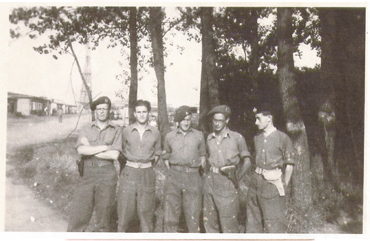Bob Kutner – Video Interview
Bob Kutner – Video Interview ☰ Life Before The War Life During The War Immigration Settling In Integration Reflection On Life Video Interview Home Bob Kutner Bob Kutner – Video Interview Tags: bob Interview kutner Video Return to Top ↑ Life Before The War Life During The War Immigration Settling In Integration Reflection On Life… Continue Reading Bob Kutner – Video Interview

